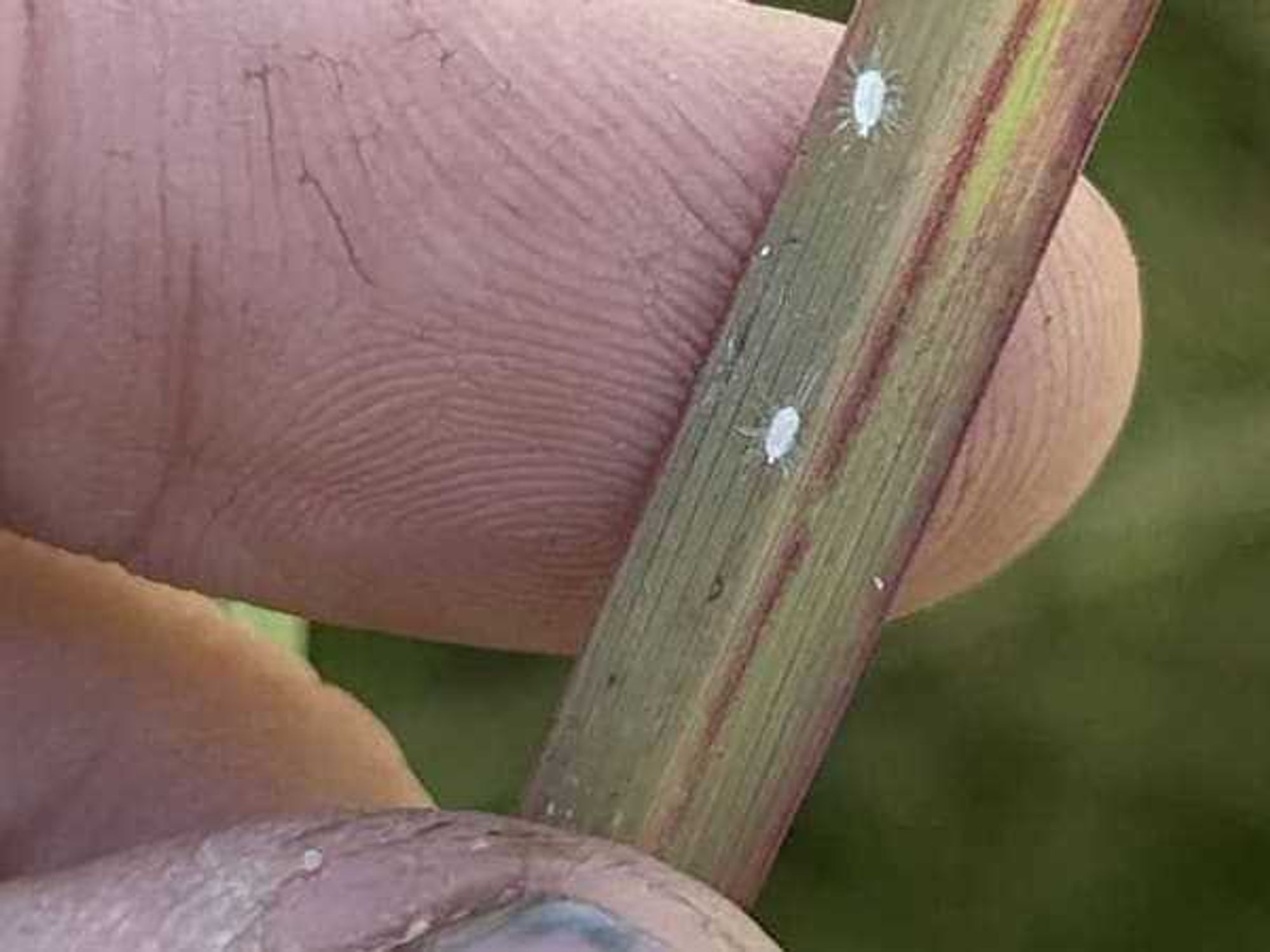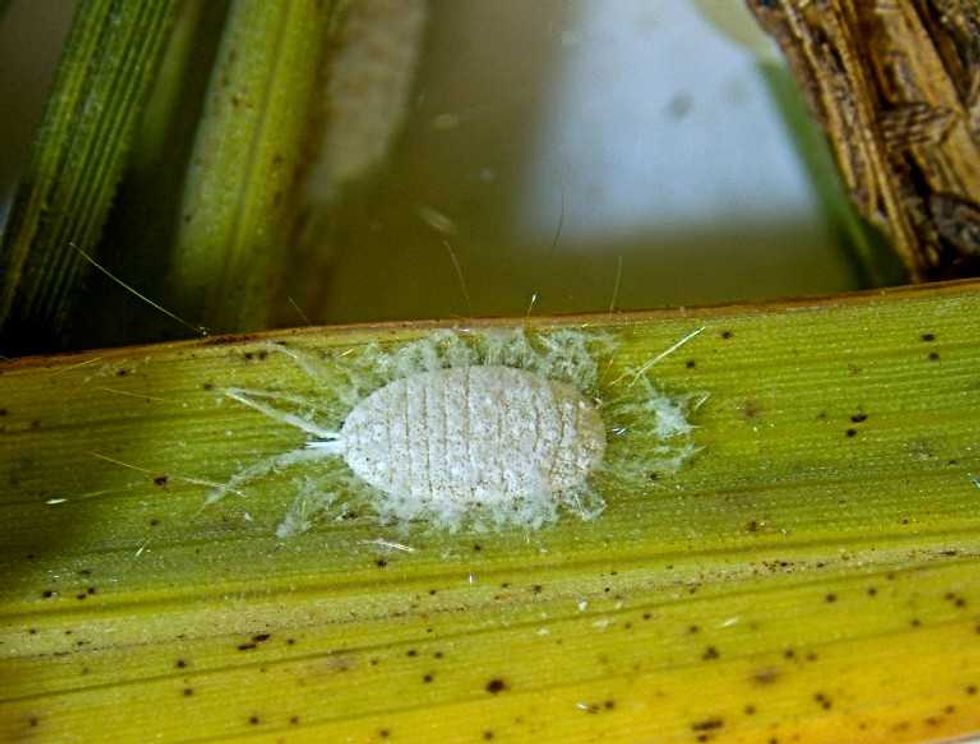Cancer Awareness
How a UT Austin student turned a cancer diagnosis into fuel for fundraising,part I
 Neil Gustafson shaved his head a few days before he began chemotherapy. Severalof his pledge brothers shaved their heads in solidarity.Photo courtesy of Neil Gustafson
Neil Gustafson shaved his head a few days before he began chemotherapy. Severalof his pledge brothers shaved their heads in solidarity.Photo courtesy of Neil Gustafson Neil (left) lost the rest of his hair as the chemotherapy went on.Photo courtesy of Neil Gustafson
Neil (left) lost the rest of his hair as the chemotherapy went on.Photo courtesy of Neil Gustafson Neil on his last day of chemo, December 28, 2010. He had to stay in Houston fora week at a time as he underwent treatment.Photo courtesy of Neil Gustafson
Neil on his last day of chemo, December 28, 2010. He had to stay in Houston fora week at a time as he underwent treatment.Photo courtesy of Neil Gustafson
Editor’s note: Jonathan Rienstra met Neil Gustafson when they were freshmen at the University of Texas at Austin. When Neil was a junior, he was diagnosed with testicular cancer and underwent surgery and chemotherapy to combat it.
For his final project in his feature writing class, Jonathan wrote about Neil’s ordeal, which culminated in his raising thousands for cancer research. What follows is the first of a two-part version of Jonathan’s college essay — his tribute to Neil and to Movember.
Neil Gustafson does not grow a strong mustache. It is stringy, slightly patchy and unimpressive.
When he speaks, the hairs on his lip move like people waiting in line at the DMV — sloppily linear and resentful.
At the beginning of his junior year at the University of Texas at Austin, Neil noticed something that would give most men pause.
Tom Selleck would laugh at Neil’s mustache. Even Neil isn’t particularly fond of it. But the fact that Neil is alive, much less able to grow facial hair, is what makes his mustache worth talking about.
In 2010, at the beginning of his junior year at the University of Texas at Austin, Neil noticed something that would give most men pause.
“One of my balls,” he says, “felt ‘different.’”
It wasn’t swollen, and it didn’t hurt, he says, but he knew that his left testicle wasn’t supposed to be quite so hard or sensitive. In mid-September he drove home to Houston to celebrate Rosh Hashanah with his parents. He told his dad, Paul, about the discomfort.
Paul, an oncologist in Houston, told him that it was probably nothing to worry about but that he should get checked at UT’s health services, UHS, when he returned, just to be sure.
The diagnosis
When Neil got back to Austin, he went to see a university doctor, who told him that although his testicle was “tender to the touch,” he otherwise appeared healthy. Still, the doctor told him that he should get an ultrasound.
The next day, Neil went to the Heart Hospital in west Austin.
“I wasn’t really nervous,” Neil says. “It was kind of awkward. They do it the same way they check on pregnancies. So there was this girl who basically had to lube up my balls and rub the stick over them.”
The ultrasound took nearly 30 minutes, which seemed strange to Neil. If everything was fine, why was it taking so long?
The ultrasound took nearly 30 minutes, which seemed strange to Neil. After all, if everything was fine, why was it taking so long? He tried to stay positive; maybe the nurse wasn’t sure what to look for.
A few days later, he received a voice mail from the doctor asking Neil to call him back as soon as possible.
His doctor had found some irregularities in the ultrasound and wanted to do some follow-up tests to determine the problem. UHS put Neil in contact with Dr. Micaela Aleman, at Lone Star Urology in central Austin. She told him that it might be cancer.
“I could tell she didn’t want to freak me out,” Neil says, “but at the same time she was trying to tell me the truth.” Dr. Aleman had spoken with Paul, and Neil could sense that everyone was beginning to become very nervous about the whole thing.
“I was like, ‘Don’t fuck around with me. What else could it be?’ But the doctors love to say, ‘Well, there’s a good chance that it’s this.’”
Aleman ordered blood tests. There are three tumor markers to check for testicular cancer: AFP alpha1 feto protein, Becta-HCG and LDH. If they’re elevated, it means cancer. Neil’s were elevated.
However, the stages of testicular cancer carry varying degrees of severity. Because testicular cancer metastasizes through the lymph nodes, it can quickly spread up into the lungs and then into the brain.
Even though testicular cancer makes up only 1 percent of cancers in males, it is the most common type among men ages 16 to 35.
Even though testicular cancer makes up only 1 percent of cancers in males, it is the most common type among men ages 16 to 35. And white men are five times more likely to get it than black or Hispanic men.
Stage I is when the cancer is contained to the testes; any spreading into the lymph nodes, and the stages escalate. Lance Armstrong, arguably the most famous testicular cancer survivor, had stage III, which meant it had spread to the lungs and brain.
Less than two weeks after Neil had originally gone to the doctor, Dr. Aleman confirmed that he had stage I testicular cancer and needed surgery.
“She asked me if I wanted to cry, if I needed a tissue,” he says. “I was like, ‘I don’t want to fucking cry.’ I had researched it a little before, because everyone was beating around the bush, and I knew that it was the most treatable form of testicular cancer. I didn’t think I was going to die or anything, so I was pretty calm.”
Neil underwent a chest X-ray and a CAT scan to see if the cancer had gone into the lymph nodes or his lungs, but those tests came back negative. The cancer appeared to be contained to his left testicle.
In fact, Neil’s levels were relatively low. In late-stage testicular cancer, the levels of the three tumor markers in the blood can get up over 1,000. A normal, non-cancerous level is below 40. Neil’s were in the 80s.
The treatment
Aleman wanted to schedule surgery immediately. Neil wanted to wait so he could ride up on the bus with his fraternity brothers from Zeta Beta Tau to watch the Longhorns take on the Sooners that weekend.
Of all the things surrounding the cancer, Neil says the idea of having one of his “boys” removed was the most unsettling.
Despite Neil’s pleas, the doctors insisted he have the surgery. Three weeks after Rosh Hashanah, on September 28, Neil went to St. David’s on 32nd street to have his left testicle removed.
Of all the things surrounding the cancer, Neil says the idea of having one of his “boys” removed was the most unsettling. “The doctors told me that it wasn’t going to change anything — that I wouldn’t even notice after a day or two. I didn’t really believe them,” he says.
Neil was under for several hours during the surgery. When he woke up, he says at first he was kind of in shock because of the bandages and the idea of it all. But after the initial jolt wore off, he realized that nothing had really changed.
In the days before the surgery, Neil had told his roommates about the cancer. Chad Minsky was one of his pledge brothers.
“I never thought something like that could happen to one of my friends while we were still in college,” Chad says. “I was scared and shocked.”
Neil sent an email to ZBT saying that he would be fine, but that if he was a little different, this was why. He found that his friends were supportive, if anything.
“I knew right away that Neil would be able to beat it because he is so resilient,” Chad says.

 MealybugTAMU
MealybugTAMU